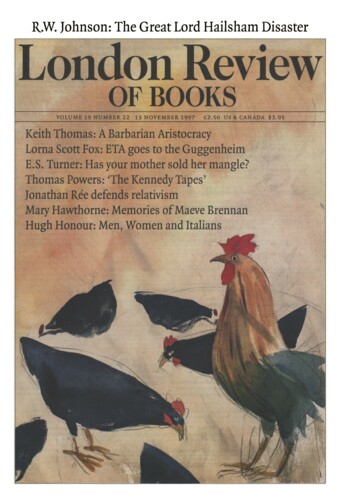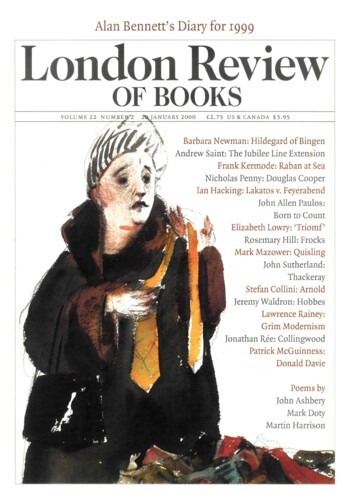Selflessness
Jonathan Rée, 8 May 1997
‘For God’s sake leave me alone!’ ‘Why the hell should I?’ ‘What’s it to me anyway?’ That sort of unilateral declaration of indifference must be the starting point of nearly all family quarrels, and plenty of political catastrophes as well. ‘Why should I always give way to other people? Am I my brother’s keeper?’ But eventually the question will be turned sarcastically back on you. ‘You think you’re so special? The only pebble on the beach? It’ll be a different story when it’s you that’s run out of luck, just you wait and see.’





